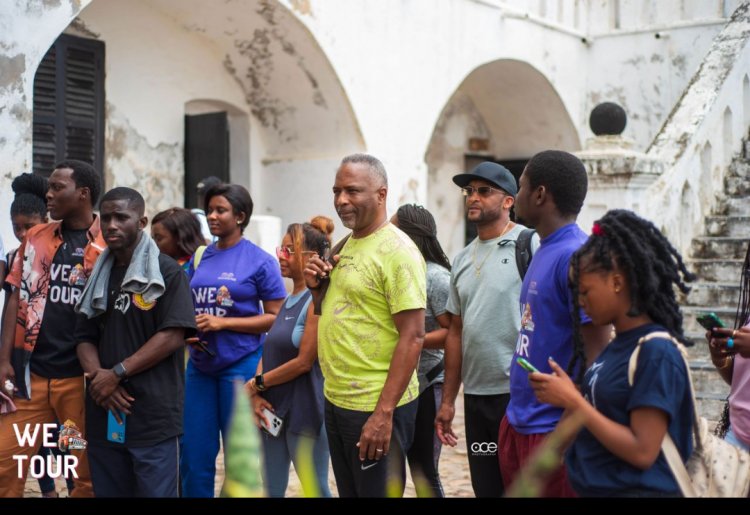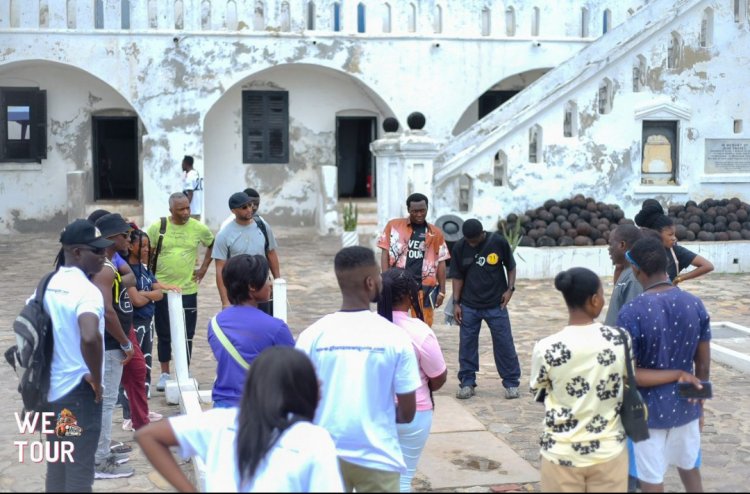The Disparity of Tourism in Ghana: A Tool to Promote Nationalism or Perpetuate Racism?- Ishmael Awudi writes
This divide, primarily pronounced in the United States, has too often led to conflict, loss of life, and destruction among communities.

In the wake of post-colonialism, the issues of racism and a culture of superiority and inferiority have cast a long shadow over the relationship between the Western world and Africa, the Caribbean, and black communities worldwide.

This divide, primarily pronounced in the United States, has too often led to conflict, loss of life, and destruction among communities.
This essay delves into the specific context of Ghana, a nation to which many blacks, expatriates, and members of the African diaspora trace their ancestral roots.
It explores the fundamental factors contributing to the unattractiveness of tourism in the country's historical sites and raises thought-provoking questions about the ethical aspects of charging people to visit places where their ancestors were humiliated, brutalized, and transported.
The Dilemma of Historical Tourism in Ghana: Ghana stands as a living testament to the painful history of the transatlantic slave trade, making it a place of deep significance for the African diaspora.
However, a troubling issue arises when contemplating a visit to these historical sites: Should one have to pay a fee to witness the locations where their grandparents endured unimaginable suffering?
If Ghana, as a nation, truly values unity, why then do they impose additional charges on expatriates seeking to connect with their roots?
A case in point is the Cape Coast Castle, a haunting relic of the past that vividly portrays the horrors of the slave trade.
It is disheartening to see members of the diaspora being compelled to pay more to visit a place that is deeply intertwined with their own history and identity.
This raises a critical question: Are we, as a nation, inadvertently perpetuating the very racism and culture of separatism that we claim to abhor?
The Year of Return Initiative: In October 2018, the President of Ghana announced the "Year of Return" initiative in Washington, D.C., aiming to encourage members of the African diaspora to visit Ghana.
The Year of Return in 2019 commemorated the 400th anniversary of the first recorded arrival of enslaved Africans in the Americas, recognizing Ghana's historical significance as a key transit point in the slave trade.
The President articulated Ghana's responsibility to welcome those who could trace their ancestry to Africa.
The Need for Change: While Ghana proudly positions itself as a gateway for African descent individuals to reconnect with their roots, the practice of charging exorbitant fees for visiting historical sites presents a dissonance in our message.
Ghana preaches unity, oneness, and selflessness; therefore, our actions should reflect these principles.
Way Forward: Rather than charging higher fees for diaspora visitors to historical sites, Ghana can adopt a more inclusive and ethical approach.
One solution is to implement donation boxes at these sites, allowing visitors, both local and international, to contribute voluntarily.
Such an approach not only acknowledges the importance of these historical sites but also fosters a sense of unity and shared history.
In conclusion, the disparity in tourism pricing in Ghana has raised pertinent questions about whether it serves to promote nationalism or perpetuate racism.
By adopting a more equitable and inclusive approach to historical site visits, Ghana can better align its actions with its message of unity and oneness, offering a more meaningful and impactful experience for all visitors.
This is a critical step towards healing the wounds of the past and building a future grounded in mutual respect and understanding.

 Prosper Kwaku Selassy Agbitor
Prosper Kwaku Selassy Agbitor 


































